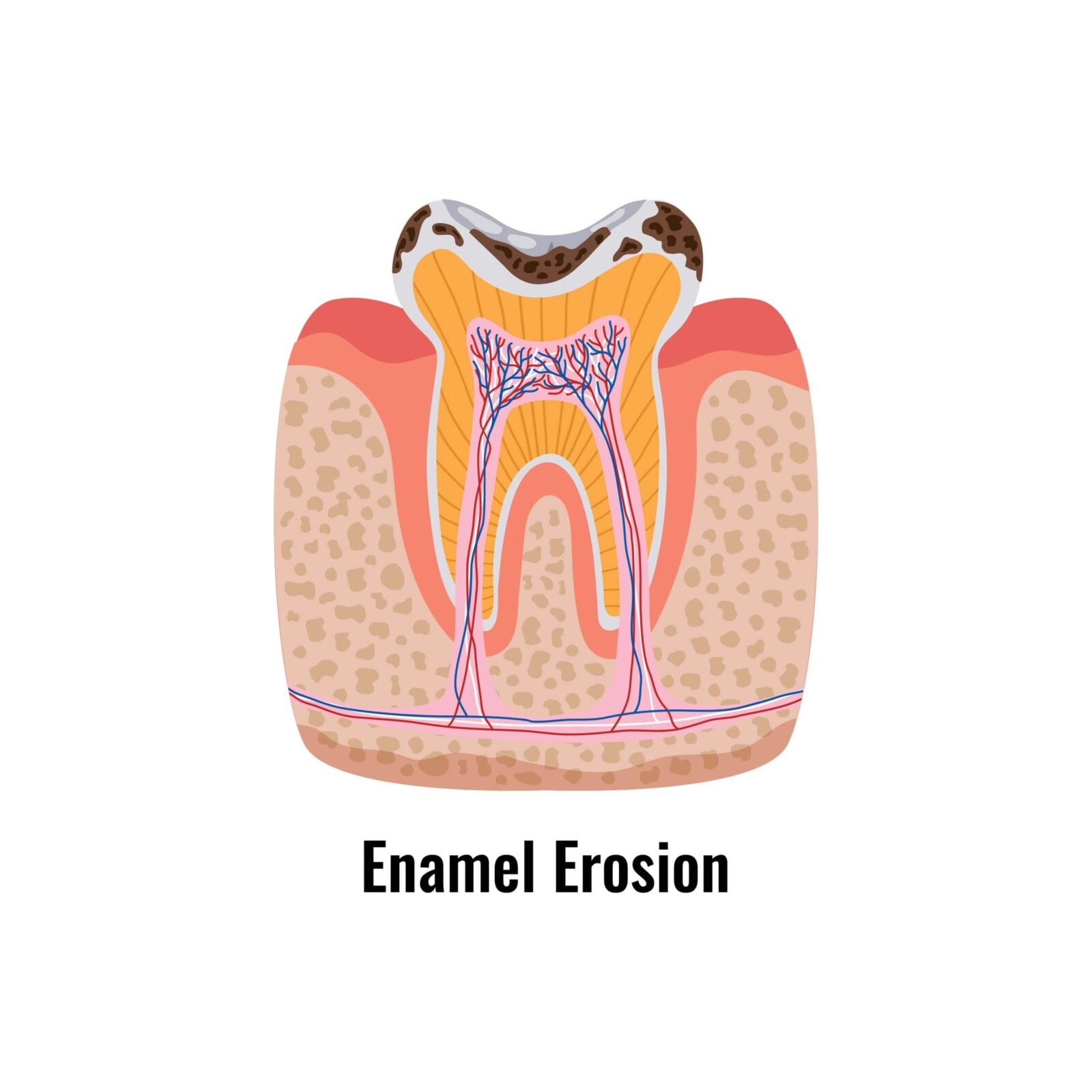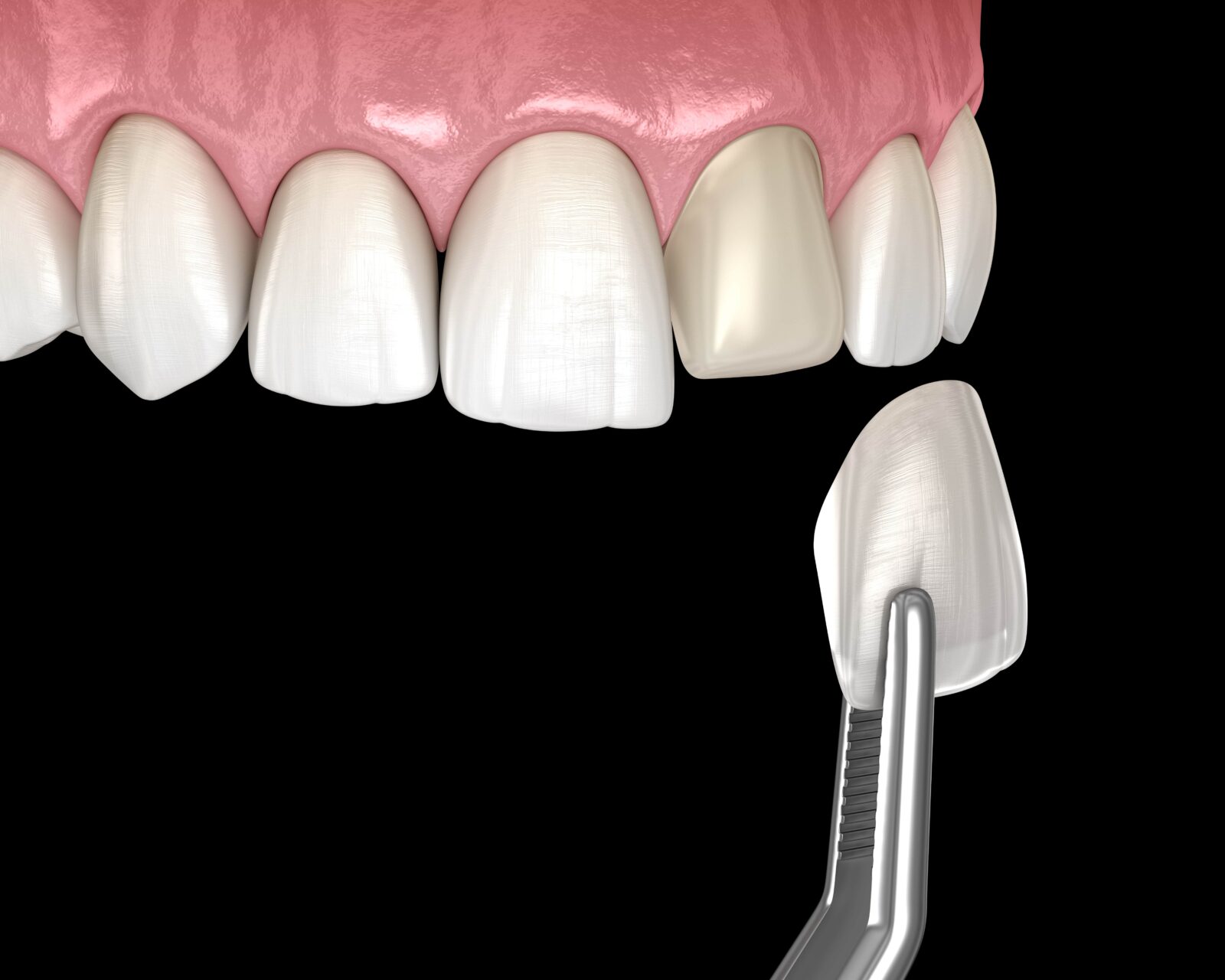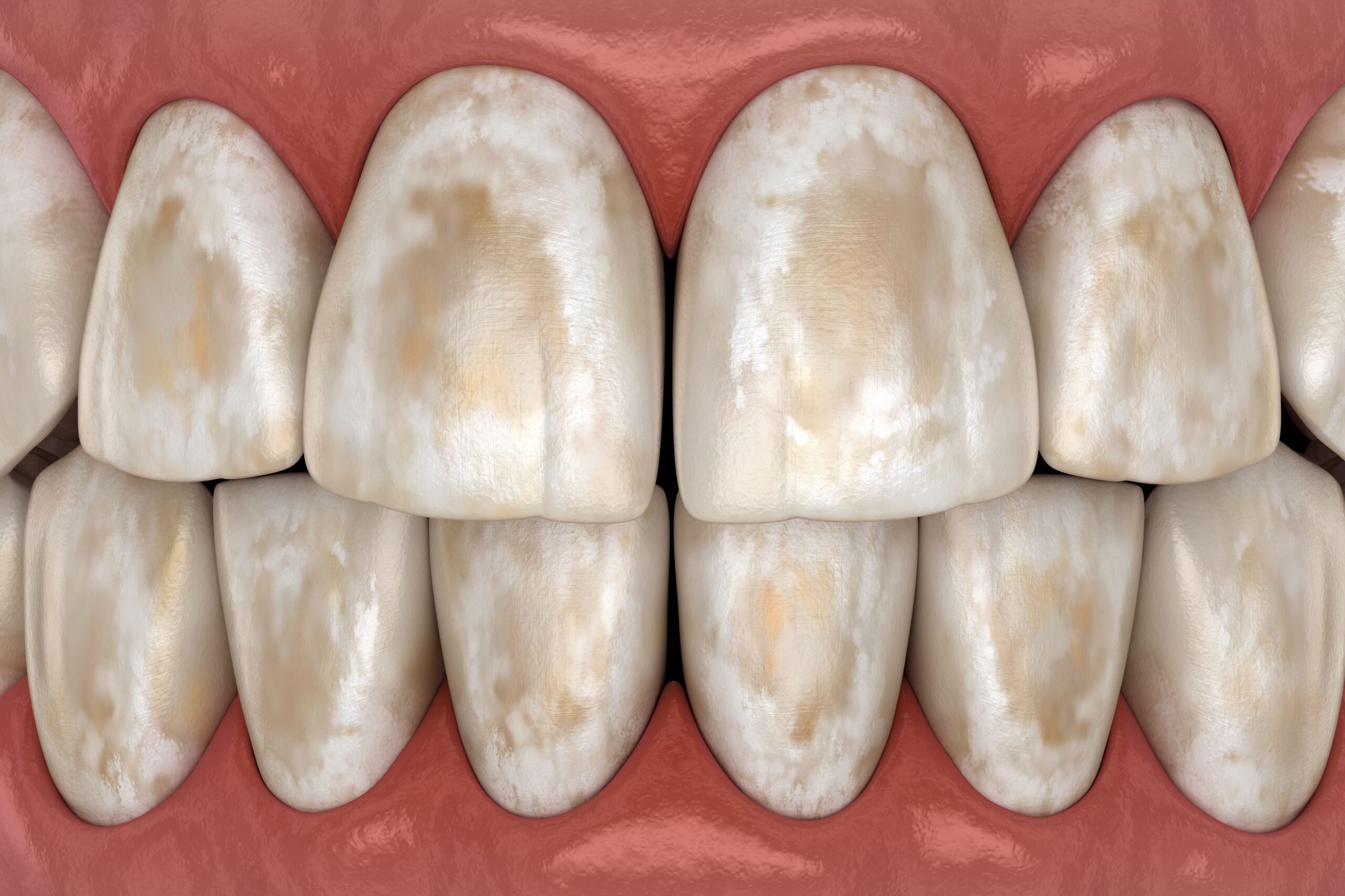Your teeth are more than just tools for chewing; they play a significant role in your overall health and appearance. The outermost layer of your teeth, known as enamel, is a protective shield against decay. However, this shield isn’t invincible. Enamel erosion is a common dental concern, and understanding it is crucial for maintaining a healthy smile.
What is Enamel Erosion?

Enamel erosion refers to the wearing away of the tooth’s hard, outer layer. Unlike cavities, which are localized areas of decay, erosion affects the surface of the teeth more broadly. Over time, this can lead to sensitivity, discoloration, and an increased risk of cavities.
Symptoms of Enamel Erosion
- Sensitivity to hot, cold, sweet, or acidic foods and drinks.
- Discoloration as the yellowish dentin beneath the enamel becomes more visible.
- Rounded teeth or a sandblasted appearance.
- Transparent or thin edges on the front teeth.
- Cracks or roughness on the teeth’s surface.
Causes of Enamel Erosion
Dietary Choices:
Regular consumption of acidic foods and beverages can erode tooth enamel. Common culprits include citrus fruits (like lemons and oranges), carbonated drinks (especially colas), sports drinks, wine, and certain candies. The acid in these foods and drinks can soften the enamel, making it more susceptible to erosion.
Acid Reflux:
Medical conditions like gastroesophageal reflux disease (GERD) result in stomach acids flowing back into the mouth. These acids can erode the enamel on the teeth.
Bruxism:
Grinding or clenching the teeth, especially during sleep, can wear down the enamel. The force and friction from this repetitive action can cause significant enamel loss over time.
Dry Mouth:
Saliva plays a crucial role in neutralizing acids in the mouth and helping to remineralize tooth enamel. Conditions or medications that reduce saliva production can lead to dry mouth, increasing the risk of enamel erosion.
Medications:
Some medications, especially aspirin and antihistamines, are acidic in nature and can contribute to enamel erosion if they come in direct contact with teeth. Medications that cause dry mouth can also increase the risk of enamel erosion.
Environmental Factors:
Chewing on hard objects, using teeth as tools, or even aggressive tooth brushing with hard-bristled toothbrushes can mechanically erode the enamel. Additionally, exposure to chlorinated swimming pool water can also erode enamel if swimming frequently.
Genetics:
Some people may be genetically predisposed to have softer enamel, making them more susceptible to erosion.
Excessive Alcohol Consumption:
Alcoholic beverages, especially when consumed in large quantities, can be acidic. Combined with the dehydrating effect of alcohol, which reduces saliva production, this can increase the risk of enamel erosion.
Preventing Enamel Erosion
Mind Your Diet:
Limit the intake of acidic foods and drinks, such as citrus fruits, sodas, and wine. If you do consume them, try not to swish them around in your mouth and avoid holding them in your mouth for extended periods. After consuming acidic or sugary foods and beverages, rinse your mouth with water. This helps to neutralize acids and wash away sugar residues that bacteria can feed on.
Use a Straw:
Using a straw can minimize the contact of acidic or sugary drinks with your teeth, reducing the potential for erosion.

Chew Sugar-Free Gum:
Chewing gum stimulates saliva production, which helps neutralize and wash away acids. Opt for sugar-free varieties to avoid adding more sugar to the mouth.
Brush with a Soft-Bristled Toothbrush:
Soft-bristled brushes are gentler on the enamel compared to hard-bristled ones. Additionally, use a fluoride toothpaste, which can help strengthen enamel. You should also wait at least 30 minutes before brushing your teeth. Brushing immediately can spread the acid around and increase the risk of erosion.
Drink Water:
Drinking water throughout the day helps to keep the mouth hydrated and aids in washing away food particles and acids.
Use Fluoridated Products:
Fluoride strengthens enamel and reduces its demineralization by acids. Consider using fluoride toothpaste and mouthwashes, and if your tap water isn’t fluoridated, discuss supplemental fluoride treatments with your dentist.
Regular Dental Check-ups:
Regular visits to the dentist can help detect early signs of erosion. Dentists can also provide treatments like fluoride applications to strengthen enamel.
Treatment Options
If you’re experiencing enamel erosion, it’s essential to consult with a dentist. They may recommend:
Desensitizing Toothpaste:
For teeth that have become sensitive due to enamel erosion, desensitizing toothpaste or products can be recommended. These products contain compounds that help block the transmission of pain signals from the tooth surface to the nerve.
Fluoride Treatment:
Fluoride treatments can help strengthen the enamel and reduce the risk of further erosion. These treatments can be in the form of gels, varnishes, or foams applied directly to the teeth at the dentist’s office.
Dental Sealants:
Sealants are a protective coating applied to the chewing surfaces of the back teeth. They can protect these surfaces from acid attacks and further erosion.

Enamel Microabrasion:
This procedure involves removing a small amount of enamel to reduce discolorations or superficial stains caused by erosion. It’s often followed by teeth whitening to achieve the desired aesthetic result.
Bonding or Veneers:
Dental bonding involves applying a tooth-colored resin material to the affected teeth. This resin can cover up areas of erosion, protect the tooth from further damage, and improve its appearance. Veneers are thin shells, typically made of porcelain, that are bonded to the front surface of teeth. They can effectively cover up and protect areas of enamel erosion, providing a smooth and even appearance.
Crowns:
For severe enamel erosion where a significant portion of the tooth structure is compromised, dental crowns might be recommended. A crown covers the entire visible portion of a tooth, restoring its shape, size, and function while protecting it from further damage.
In Conclusion
Enamel erosion is a gradual process, but with awareness and proactive care, you can protect your teeth and maintain a healthy smile. Remember, your enamel is the first line of defense against many dental issues, so give it the care it deserves.



